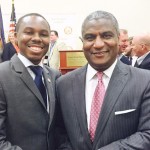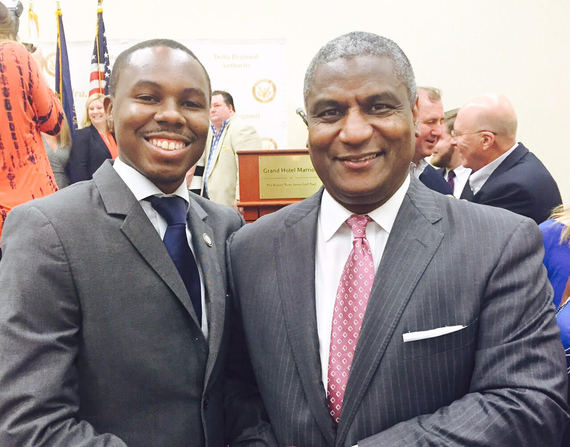
The Mississippi Delta is a storied stretch of the Deep South, coveted as the birthplace of Blues, a form of soul music derived from field workers singing pain-inspired chants depicting their deprived conditions manning the cotton fields. The timeless genre is reflective of the region’s reputation, haunted by a history of brutal segregation and extreme poverty. Though it’s come to be appreciated for unmatched hospitality, top tier dining, and home to many southern landmarks – little notable progress has been made to transform its troubled perception and reality. With minimal investments in education and a lack of resources, many families in the region are trapped in a cycle of generational …
The Mississippi Delta is a storied stretch of the Deep South, coveted as the birthplace of Blues, a form of soul music derived from field workers singing pain-inspired chants depicting their deprived conditions manning the cotton fields. The timeless genre is reflective of the region’s reputation, haunted by a history of brutal segregation and extreme poverty. Though it’s come to be appreciated for unmatched hospitality, top tier dining, and home to many southern landmarks – little notable progress has been made to transform its troubled perception and reality.
With minimal investments in education and a lack of resources, many families in the region are trapped in a cycle of generational stagnancy, unequipped with the necessary training to thrive in today’s evolving economy. In an era reflecting remarkable growth in entrepreneurship, digital media and modern technology, there’s an an increasing decline in agricultural jobs and other forms of manual labor work, which once stood as the lifeblood of rural America.
Most public officials in the Mississippi Delta have maintained their political posts for decades, holding tight to longstanding ideals that have placed crippling restrictions on much needed infrastructural change.
Noticing the need for young leadership, innovative ideas, and effective planning — one young man turned away from a promising corporate career to step in and elevate the standard for good.
Timothy Lampkin is a 29-year-old Community Development Consultant in Clarksdale, Mississippi. In his role, Lampkin identifies and secures federal funding, educates small business owners, develops community initiatives, and connects influential game-changers across counties to collaborate on special projects aimed at amplifying the treasured culture that personifies the Delta.
I spoke with the sharp-minded activist about what fueled his drive to reshape the region, the challenges ahead, his ultimate end goal, and the calculated plan for achieving it.

(Timothy Lampkin (L) with Rodney Slater (R), 13th U.S. Secretary of Transportation at the DRA Leadership Institute Graduation)
Your journey to this point is very compelling – describe your background and what motivated you to take on the responsibility you have today.
I was actually born in Chicago, but moved to Mississippi at a young age. I always had a feeling that I had a higher purpose. In college, at Mississippi Valley State, I was involved with Habitat for Humanity and student leadership, eventually becoming SGA President. There, I learned how to work with different people from different backgrounds. Then, after graduating, I moved to Mobile, Alabama to work in sales, where I was the only African American Assistant Sales Manager. It seemed like success, but then I woke up one morning and said honestly to myself, “I’m not doing what I should be doing”. So, in 2011, I moved back to Clarksdale and started volunteering. Then I worked at BankCore, a community development bank that serviced four surrounding counties in the Delta. That’s where I noticed there was a lot of room for creativity and fresh ideas.
At such a young age, you’ve already made tremendous strides toward transforming The Delta – what are some of the projects you worked on and initiatives you’ve implemented thus far?
I’ve helped secure $350,000 from ArtPlace America to establish the Crossroads Cultural Arts Center, where I currently serve on the Board of Directors. I’m also working with the Affordable Design and Entrepreneurship team from Olin College of Engineering, and Babson College in Massachusetts to develop entrepreneurship projects in the Mississippi Delta. I’ve helped secure $172,000 in funding to renovate the only public pool existing in Coahoma County, which its filter hadn’t been replaced since the 1950’s. Additionally, I assist the Mississippi Valley State University Foundation Board with identifying resources to awarding student scholarships, while collaborating with the Delta Center for Culture and Learning at Delta State University to host the Lunch and Learn event in conjunction with the “Winning The Race” conference.
What gives you an edge and makes you someone people throughout the region can trust to lead them?
I have an advantage because I have no hidden agenda. All I really care about is getting the work done. I truly believe the work that I’m doing is my passion and my purpose, so people instantly know it’s genuine. The best approach to transforming the community is building capacity – giving people the information, tools and guidance needed for self-empowerment. When you look at the Mississippi Delta, a large percentage of the population doesn’t have a high school diploma, so they often lack the fundamental skills to be successful in society. But, I’m comfortable being around them no matter their social status or level of education, and I understand both sides. I want to empower everyone. Because of that, I also see myself as a community educator.
It seems so easy for you to relocate and have an impressive career in one of the more popular states or regions of the country – what made you choose to stay?
I’ve learned that the reason most people leave, especially younger people like myself, is really due to a conflict of pride. Because they are perceived to be at the bottom already being from here, there is a turn away from claiming Mississippi. When I realized that this is my purpose – to transform, innovate, and create new projects in the Mississippi Delta – I accepted that and ran with it. We have hard-working, creative and brilliant minds. Now, we need to start telling more positive stories. Let’s start highlighting our success stories. If we can be intentional, we can change the perception of the Delta.
What do you consider to be the biggest obstacles standing in your way?
We’ve come a long way, but I think we are now ready to move forward. Not with one section of the population, but the entire community. There’s not enough collaboration – we still have a lot of work to do regarding healthcare, education and economic development. We have to come together, with diverse perspectives and ideas, and discover how we can turn every obstacle into an opportunity. Despite the negative statistics, we have a very powerful history and story to share. We have learned perseverance and how to be innovative in ways people have never thought we could.
For a segment of the Deep South with such a prominent history of segregation and lack of growth – what needs to happen to make that shift in both perception and reality?
We need to talk more to each other, moving beyond tolerance. We have to be more welcoming, then after that, we can have more intellectual conversations. Young leadership – that’s how we turn it from what’s ideal to what’s possible. Knowing that we may get rejected the first 10 times, but we’re still introducing something new. Most of the leaders here don’t look like us – there’s a lack of African American leaders. We must get young people excited and more involved in their local community. It’s the brain drain – they get an education and rush to get out. If people like myself stayed more, what would happen to the state? I may not see it now, but it’s coming together.
Every effective movement has an action plan – what is your plan of attack going forward and what do you want to see?
We need to do a better job at building the local capacity, so that we can go after more Federal and State funding. Then, we need to redirect the resources we have to break the traditional mindset. It’s generational poverty; a generational issue that has been passed down from family to family; we have to take it as motivation and shift the mindset first. We then need to establish best practices that can be used in the county to make sure our development is consistent and sustainable. I want to see an attitude that you can still do good work without the title and power. You can really do more, actively collaborate, and make an impact no matter what position you’re in. I simply want to see us all coming together with a genuine passion to improve the community.
What is your personal philosophy and how does it keep you focused on the larger mission at hand amidst the challenges?
My mantra is do the good work and make a different in the community. I want to empower the next generation of young people in rural America making an impact in their community.
Follow me on Twitter to share your comments and continue the conversation. @AllThingsMitch
— This feed and its contents are the property of The Huffington Post, and use is subject to our terms. It may be used for personal consumption, but may not be distributed on a website.
More:
Meet The Young Man On A Mission To Transform The Mississippi Delta
























